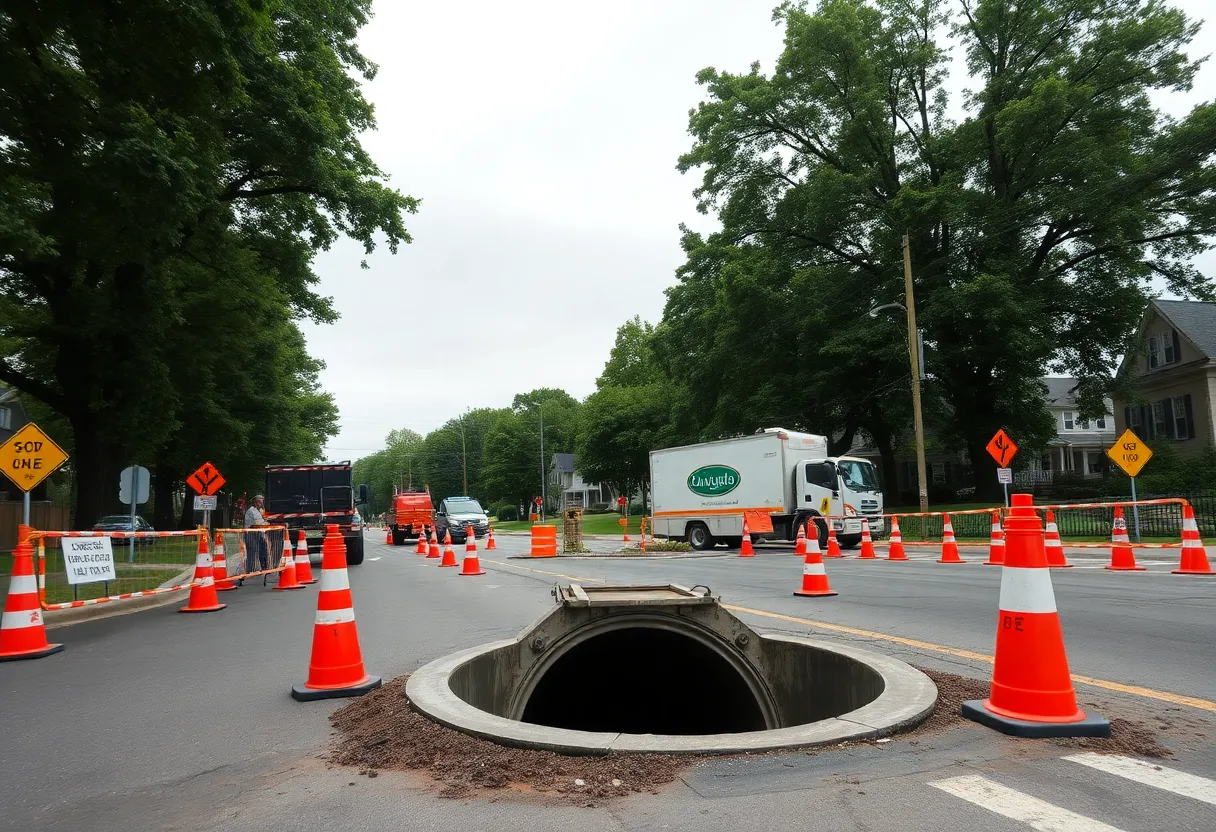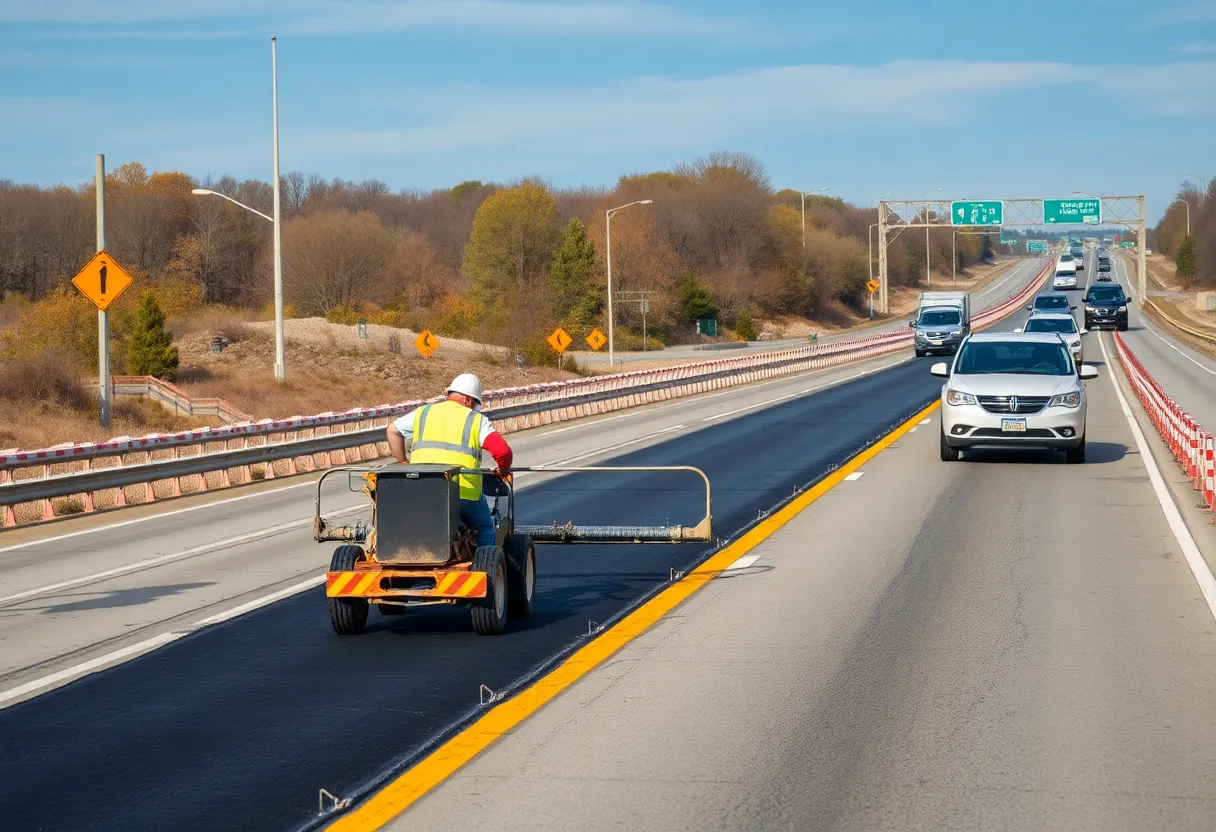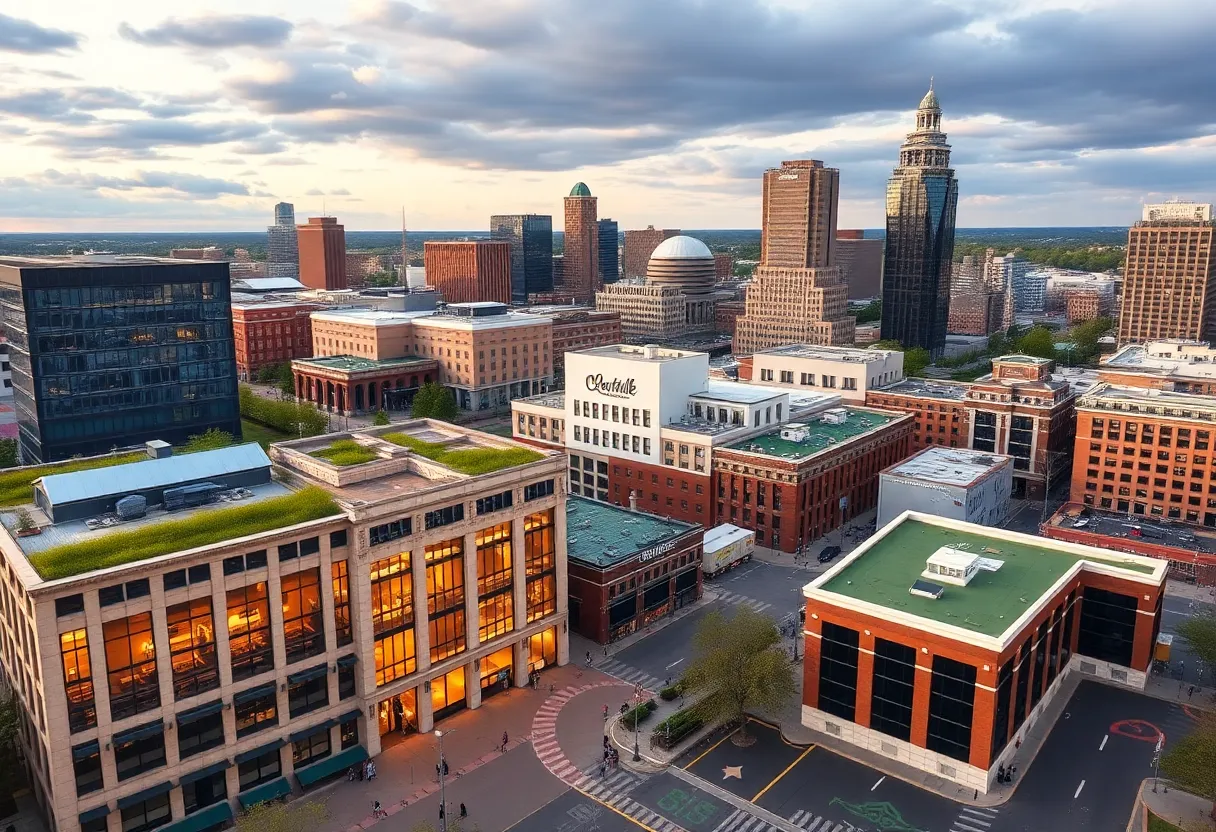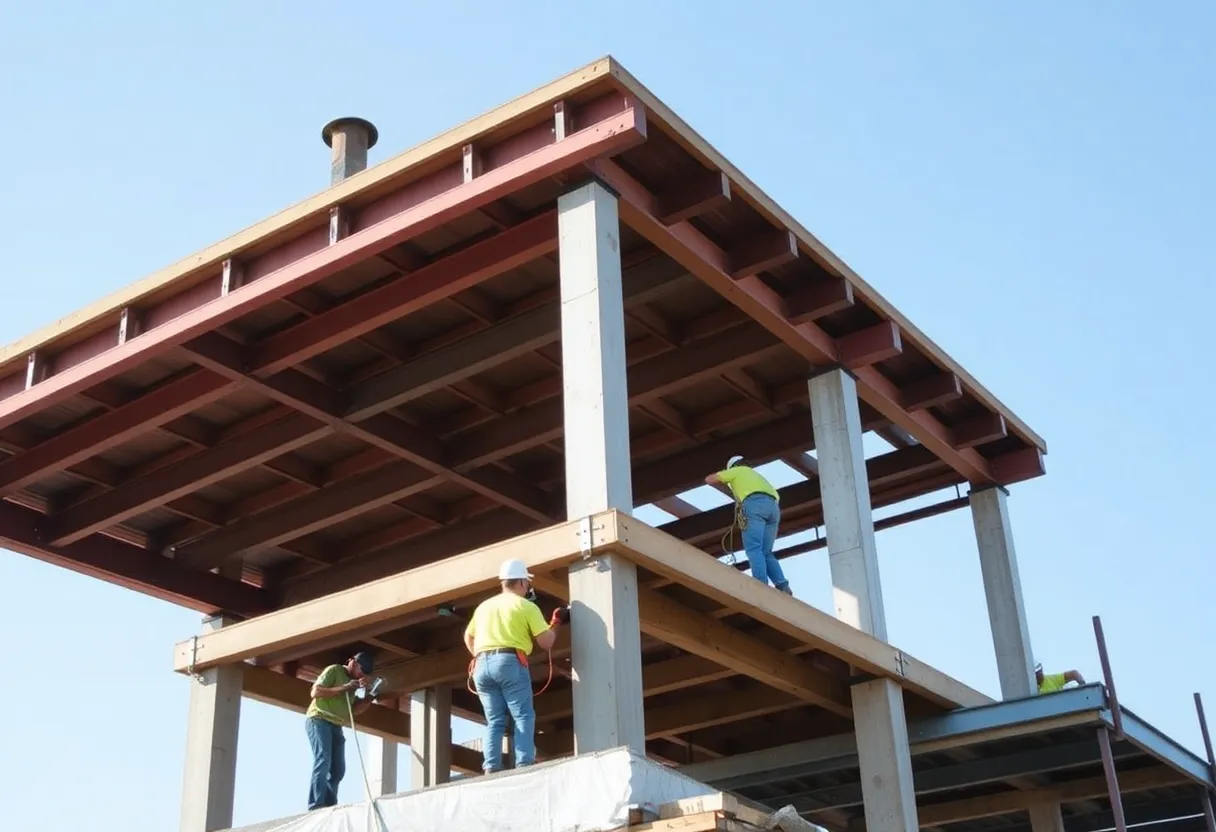, September 8, 2025
News Summary
Princeton’s council will consider borrowing $6.3 million from the New Jersey Infrastructure Bank to fund the Mini‑System 36 sewer rehabilitation covering neighborhoods bounded by John, Ewing, Mount Lucas and Quarry streets. The work uses trenchless methods, non‑toxic grout injections, selective lining and replacements to cut groundwater and rainwater infiltration, lower treatment costs and extend pipe life. The agenda also includes a Hamilton Avenue sewer replacement up to $409,670. Budget pressures and a multi‑year capital plan could raise sewer fees gradually. A court order is temporarily blocking rescission of a separate $2.75 million contract after a contractor lawsuit.
Princeton Council to Vote on $6.3M Loan for Sewer Rehab as Town Expands Repairs and Faces Contractor Lawsuit
$6.3 million in borrowing is scheduled for a council vote on Monday, Sept. 8 at 7 p.m. The loan would come from the Construction Financing Loan Program of the New Jersey Infrastructure Bank (NJIB) to fund the Mini‑System #36 Sewer Rehabilitation Project, a broad sewer repair effort covering much of northern Princeton.
Topline: what the vote covers
The main resolution would finance sewer work in the area bounded by John Street, Ewing Street, Mount Lucas Road and Quarry Street. The project is intended to reduce how much clean groundwater and rainwater enters the sanitary sewer system, lower wastewater treatment costs, and strengthen aging pipes through sealing and grouting. The council will also consider approval of a separate sanitary sewer replacement on Hamilton Avenue, a project that could cost up to $409,670.
Why the work is needed now
Recent studies found an estimated 40–50% of total sewer flow in some areas comes from unwanted rainwater and groundwater infiltration. Much of Princeton’s sewer system is older than neighboring systems, uses older pipe materials, and covers about 130–150 miles. With nearly 80% of homes connected to public sewers, the town is moving toward targeted fixes that limit invasive excavation where possible. Many work items will be timed with road reconstruction or done in easements to reduce disruption.
How the repairs work
The Mini‑System #36 plan includes non‑toxic chemical grout injections to seal joints and cracks, lining or selective replacement of mains, and other repairs to cut groundwater inflow. The goal is to stop clean groundwater from being treated as wastewater, which currently raises the town’s treatment bills. Some projects use trenchless methods to avoid opening roads; full excavations will be coordinated with planned street work.
Budget and rate implications
Sewage costs have been a major factor in municipal budgeting. Sewer system expenses rose by $154,981 from 2024 to 2025, from $1,297,545 to $1,452,526, making sewer expenses the second‑largest item among Public Works departments in the 2025 municipal budget. Payments to the regional treatment authority also rose, with appropriations to the Stony Brook Regional Sewerage Authority increasing by $211,863 from 2024 to 2025. Municipal leaders have cited these sewer-related costs among the reasons for higher budgets and taxes earlier this year.
Longer term planning presented to the council lays out an estimated $7.25 million per year for roughly nine years for mains replacement, inflow and infiltration (I&I) reduction, pump station repairs and other capital needs, plus about $3 million per year to address deferred maintenance. If the plan proceeds as outlined, typical single‑family sewer fees are expected to rise gradually, with earlier modeling showing a projected increase of about $40–$50 per year until 2031. The 2022 average single‑family sewer fee was $435; one projection showed a potential fee near $841 by 2031 if the full program proceeds.
Funding mix and university contribution
Princeton University pledged $50 million in January 2024 for infrastructure and low‑income resident support. Of that amount, $28.2 million was available for unrestricted municipal use and $11.35 million targeted specific infrastructure projects. In the prior year, the university paid $8.8 million in municipal property and sewer taxes and made $10.8 million in voluntary contributions, including $4 million dedicated to sewer repairs. The pledged and voluntary funds are part of the town’s overall financing picture but do not eliminate the need for borrowing and capital planning.
Recent contract awards and project staging
Construction contracts for upcoming sewer work were awarded to a New Jersey company in late August. Other nearby projects are already underway, including work on Mount Lucas Road identified as Mini System 35, clay pipe installs near Nassau and Spring Streets, and evaluations of Witherspoon Street phases. The town is analyzing six pump stations for replacement or resiliency upgrades and intends to coordinate sewer replacements with utility and road work to avoid reopening recently fixed streets.
Legal dispute affecting sewer work
The council’s agenda comes as the municipality is restrained by a court order from rescinding a $2.75 million sewer contract with a contractor based in Edison. A county judge issued a temporary restraining order after a contractor filed suit challenging contract cancellation tied to the discovery of a container containing asbestos‑related materials at the municipal sewer site on River Road. The court found insufficient documentation from state regulators in the town’s filing and said the matter involved past conduct, not the current contract’s performance. The order prevents the town from terminating that particular contract while the case proceeds.
What residents may experience
Many I&I reduction activities are designed to be minimally disruptive, often done in unpaved rights‑of‑way without excavating streets. Where manholes or mains must be excavated, work will be timed with road projects. Residents in affected neighborhoods should expect occasional roadway or household disruptions during construction, and project teams will provide updates to communities in Mini System areas as work progresses.
Next steps and timeline
The council must approve borrowing and project resolutions to move forward; the loan vote and related resolutions are set for the Sept. 8 meeting. Once bids are awarded and contracts signed, schedules for design, pump station upgrades and staged construction will be shared. Municipal planners estimate that, if the multi‑year investment proceeds on schedule, annual sewer capital needs would eventually level off to about $6.5 million per year after deferred maintenance is addressed.
Who to watch for updates
The sewer program involves municipal staff, the town’s sewer committee, the regional treatment authority and contractors. Project engineers and committee leaders continue to present details at public meetings as the multi‑year plan advances.
FAQ
What is the council voting on?
The council will vote on borrowing $6.3 million from the NJIB to fund the Mini‑System #36 sewer rehabilitation and on approving a Hamilton Avenue sanitary sewer replacement that could cost up to $409,670.
Where is Mini‑System #36?
Mini‑System #36 serves the area roughly bounded by John Street, Ewing Street, Mount Lucas Road, and Quarry Street.
Why is this work necessary?
Assessments show large amounts of groundwater and rainwater are entering sewers, increasing treatment costs. Older pipes, leaks, and deferred maintenance mean targeted repairs are needed to cut costs and avoid more invasive work later.
Will this raise my taxes or sewer bill?
The town has increased sewer-related budgeting and rates in recent years. Long‑term plans would add debt service and operating costs that could raise single‑family sewer fees incrementally, according to earlier projections.
Will construction close streets or disrupt utilities?
Many repairs use trenchless methods and are timed with road projects to limit reopening streets. Some localized excavations and temporary disruptions are expected during repairs and major replacements.
How does the contractor lawsuit affect projects?
A temporary court order currently prevents the town from rescinding one contractor’s contract while the dispute is adjudicated. That order could delay some planned work tied to that contract but does not stop the broader multi‑year sewer program.
Key Features at a Glance
| Item | Detail | Cost / Impact |
|---|---|---|
| Loan vote | Borrowing from the NJIB for Mini‑System #36 rehab | $6.3 million |
| Project area | Mini‑System #36: John, Ewing, Mount Lucas, Quarry | Reduces groundwater inflow, lowers treatment costs |
| Hamilton Avenue | Sanitary sewer replacement | Up to $409,670 |
| Budget changes | Sewer expenses rose between 2024 and 2025 | Increase of $154,981; 2025 total $1,452,526 |
| Regional payments | Stony Brook Regional Sewerage Authority funding | Up $211,863 from 2024 to 2025 |
| Contract dispute | Temporary court order blocks rescinding one contract | May delay specific contract work |
Deeper Dive: News & Info About This Topic
Additional Resources
- Daily Princetonian: Princeton Council to Vote on Sewer Rehab Loan
- Wikipedia: Sanitary sewer
- Patch: North Main Street closing Tuesday for sewer main repair (Yardley, PA)
- Google Search: sewer main repair road closure
- KTTN: Princeton City Council approves water rate reductions for residents
- Google Scholar: inflow and infiltration sewer mitigation
- Patch: Princeton authorizes $1.7M contract for road improvements
- Encyclopedia Britannica: stormwater infiltration
- Planet Princeton: Judge issues temporary restraining order on sewer contract rescission
- Google News: Princeton sewer contract lawsuit
Author: Construction FL News
The FLORIDA STAFF WRITER represents the experienced team at constructionflnews.com, your go-to source for actionable local news and information in Florida and beyond. Specializing in "news you can use," we cover essential topics like product reviews for personal and business needs, local business directories, politics, real estate trends, neighborhood insights, and state news affecting the area—with deep expertise drawn from years of dedicated reporting and strong community input, including local press releases and business updates. We deliver top reporting on high-value events such as the Florida Build Expo, major infrastructure projects, and advancements in construction technology showcases. Our coverage extends to key organizations like the Associated Builders and Contractors of Florida and the Florida Home Builders Association, plus leading businesses in construction and legal services that power the local economy such as CMiC Global and Shutts & Bowen LLP. As part of the broader network, including constructioncanews.com, constructionnynews.com, and constructiontxnews.com, we provide comprehensive, credible insights into the dynamic construction landscape across multiple states.





